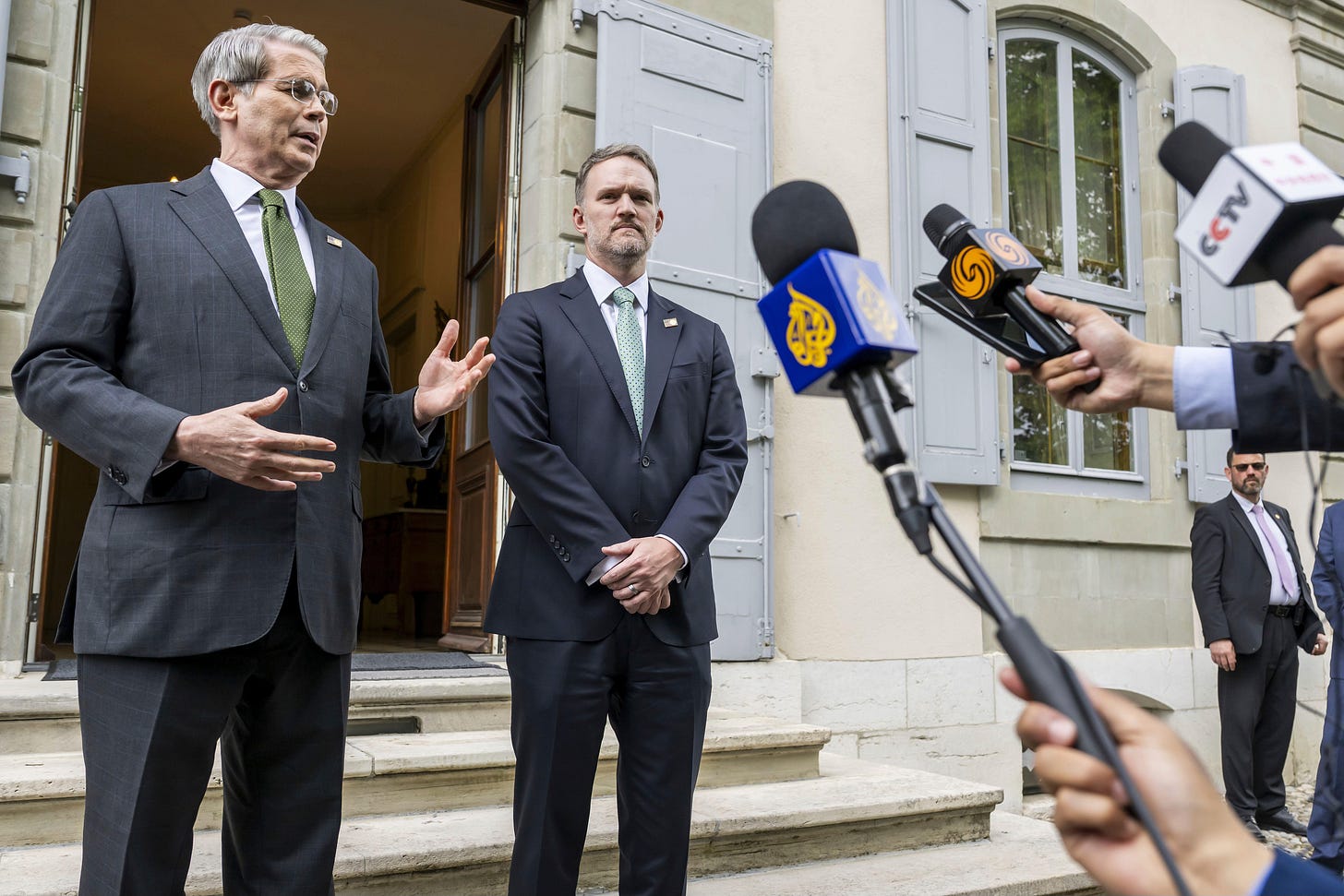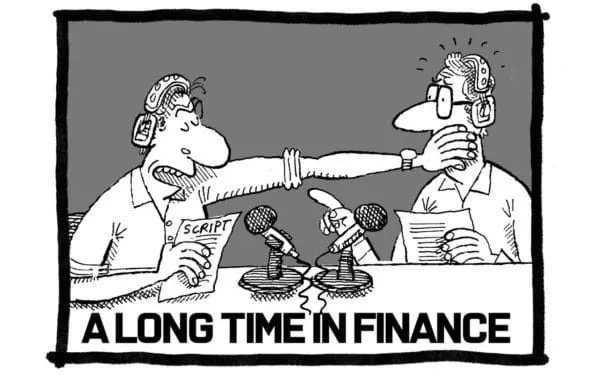
Stock markets in the US soared today after the world’s two largest economies majorly de-escalated their trade war.
Predictably, Donald Trump has presented the outcome of talks between US and Chinese officials in Switzerland over the weekend as a victory, claiming this afternoon: “They’ve agreed to fully open China”. We’re still waiting on the evidence that Beijing has in any way been trumped.
Washington and Beijing have agreed to massively slash tariffs on each other's goods for 90 days from Wednesday. The US will cut levies on Chinese goods to 30%, down from its sky-high rate of 145%, while China will cut levies on US goods to 10%, down from 125%. Both sides have vowed to continue negotiations on trade once this 90-day pause is in place.
US stock indexes staged a significant recovery in light of the announcement, trading at levels close to the start of this year before Trump’s “liberation day” tariffs unleashed global turmoil. European and Asian markets also rallied today, while China’s yuan jumped to a six-month high.
Yet the Trump administration’s efforts to present the outcome of these talks as a sign of its strength are decidedly unconvincing.
The latest US-China agreement on trade is "an extraordinary first step in the right direction", White House Press Secretary Karoline Leavitt told Fox News. The most tangible achievement she could point towards? That Beijing has agreed to "continue having discussions" about opening up its market to US products and goods.
There has been no mention of any concessions China has already made - on opening up its market to American tech giants, for instance, or buying pharmaceuticals from the US, or reining in its efforts to dominate industries such as AI or aerospace.
It’s worth remembering too that, after so-called “liberation day”, Trump repeatedly declared that he would not lower tariffs on China until it made concessions first.
Meaning the US appears to have softened its position, perhaps because the Chinese delegation sat round the table in Geneva had a stronger hand to play.
That’s not to say Trump’s extraordinary 145 per cent import tax wouldn’t have taken a heavy toll on Beijing if kept in place. China’s economy - already contending with a prolonged property slump, deflation and high youth unemployment - is heavily reliant on exports to meet its growth targets. And Goldman Sachs estimated that 16 million jobs in China could be at risk if the high tariffs persist, while Chinese factory activity contracted at its fastest pace in 16 months in April.
Yet more recent data, released last week, indicates that Beijing’s export-driven economy is proving more resilient than Washington had bargained for. China’s exports rose faster than expected in April, by over 8 per cent, suggesting that Beijing - the lead trade partner for over 100 nations - is successfully rerouting trade through other countries.
And, as Linggong Kong points out in The Conversation, since Trump launched his first tariff war on China in 2018, the importance of the US market to Chinese manufacturers has declined significantly. In 2018, US-bound exports accounted for 20 per cent of China’s total exports. By 2023, that figure had fallen to less than 13 per cent.
What’s more, by 2022, the US relied on imports from China for 532 of its 5,000 key product categories - a near-fourfold increase from 2000. Yet China’s reliance on US products was cut by roughly half over the same period. China still mines and refines most of the world's - increasingly valuable - rare earth metals, accounting for roughly 72 per cent of US rare earth imports. And tech companies such as Apple and Tesla remain heavily reliant on Chinese manufacturing.
“The talks in Geneva were very friendly,” Trump told reporters, adding: “We’re not looking to hurt China”.
Most likely because it’s slowly dawning on him just how badly American businesses will be hurt themselves, if dizzying tariffs cut them off from the biggest supplier of US goods.
While Trump is still confidently asserting today that Beijing wants a deal “very badly’, it’s starting to look as though the US may need China even more than China needs the US.
Caitlin Allen
Deputy Editor
ON REACTION TODAY
Ian Stewart
BoE's split on rate cuts shows uncertainty about inflation outlook
Neil Collins and Jonathan Ford
A Long Time in Finance: the rearmament pod
ALSO KNOW
Starmer talks tough on immigration - Keir Starmer is facing a backlash from the left of his party after he unveiled his plans to curb legal immigration today, warning that Britain risks “becoming an island of strangers”. Proposals set out in the government’s new immigration white paper will make it harder for migrants to secure citizenship as well as imposing stricter English language requirements and ending overseas recruitment for social care visas.
US-Israeli hostage released from Gaza - Hamas has released Edan Alexander, an Israeli soldier who holds American citizenship, as part of efforts to achieve a permanent ceasefire with Israel. The 21-year-old was believed to be the last living American hostage in Gaza. Trump characterised the hostage’s release as “a step taken in good faith… to put an end to this very brutal war,” seemingly contradicting the stated intentions of Netanyahu’s government, which is readying for a new ground offensive on Gaza.
PKK ends 40-year Turkey insurgency - The Kurdistan Workers Party (PKK) militant group, which has been locked in bloody conflict with Turkey for more than four decades, has said it will disband and end its armed struggle. The PKK launched its insurgency in 1984, originally with the aim of creating an independent Kurdish state.
Poland blames Russia for Warsaw arson attack - The Polish government announced today that it is formally withdrawing consent for Russia to operate a consulate in Krakow, over evidence that Russian intelligence services orchestrated an arson attack on Warsaw’s Marywilska shopping centre in May 2024.
FIVE THINGS
Remainer fantasies still have too much sway over the Labour party, writes The New Statesman
Milei’s high-stakes bid to hobble Argentina’s centre-right, in The FT
COMPACT on the horror of unlimited freedom
How gardening preserves cognitive function, in BBC Future
Engelsberg Ideas on Baron William de Ropp, a Baltic aristocrat who played a significant role in MI6's efforts to acquire intelligence on Nazi Germany




